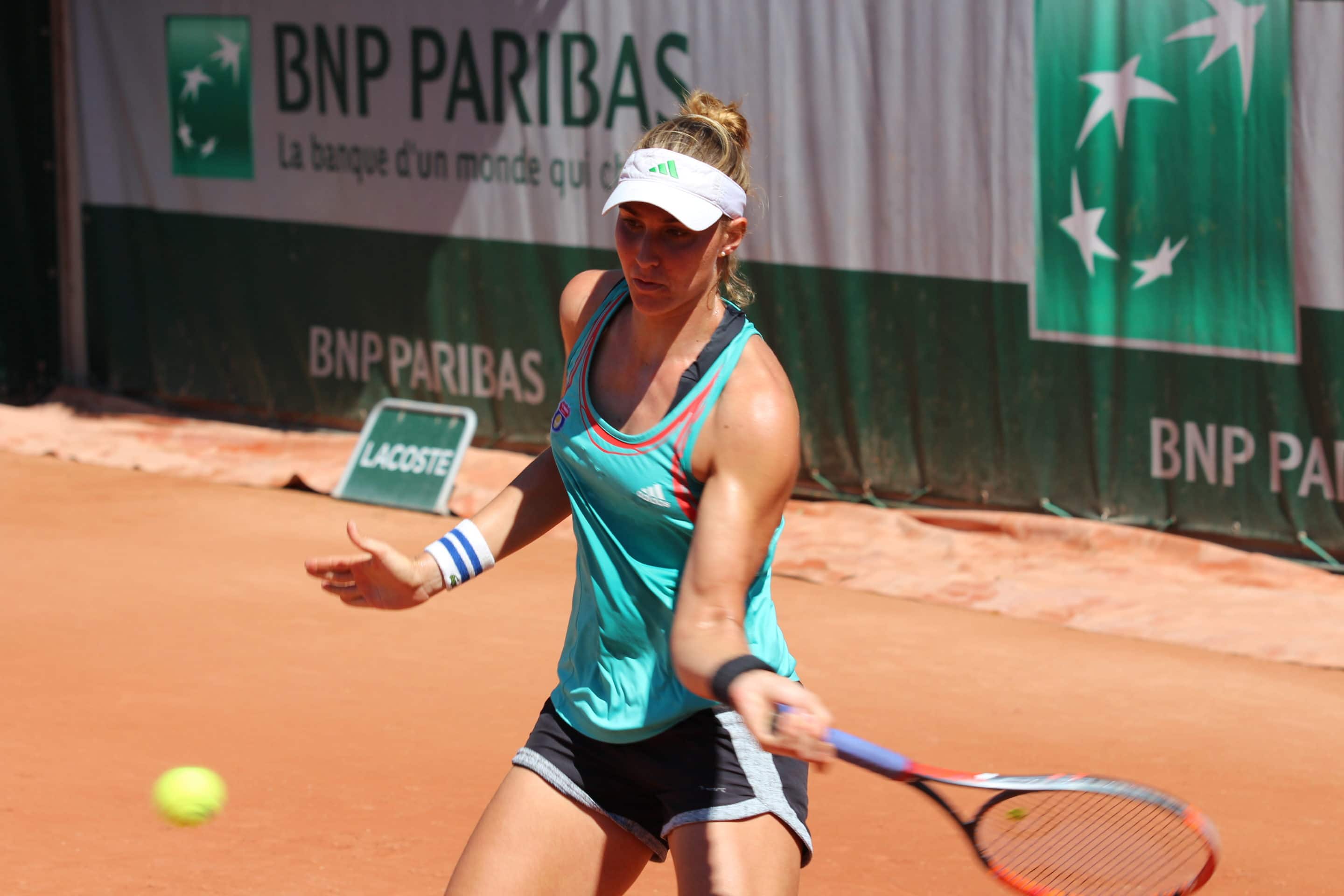Lenny Schloss began playing at age 15 and since then has had a longstanding career within the world of tennis. Becoming one of the top 10 Americans on the Pro Tour, he learned the ‘ins and outs’ of the court very quickly. But even after Lenny’s successful career, he found himself perplexed by the inconsistencies of his game. “I never felt like I was playing top level tennis. What my body was doing and what my mind was doing were never together.”
A career ending injury at age 24 led Lenny back to Baltimore where he began to investigate the side of tennis that always puzzled him. “There wasn’t anything about the physical or mental game that I hadn’t already tried,” he said. “But there was something that still didn’t make sense to me.”
Lenny soon realized that the difference between some matches resulting in great wins and others resulting in unsatisfactory losses was attributed to the eye’s inconsistencies in tracking the ball to the correct point of contact. This discovery motivated Lenny to begin researching the impact of the human eye within sports. He began collaborating with Johns Hopkins Wilmer Eye Institute, one of the top eye institutes in the world, where he was able to see the direct correlation between hand-eye coordination and athletic ability.
After extensive research, Lenny finally had the answers he had been looking for. Realizing the importance of the human eye, he developed Billie Jean King’s Eye Coach, a tool used to analyze and correctly train athletes on their sight training skills. “In tennis, when we get to the last 3 feet of our stroke, our eye shifts to the target where we want the ball to go instead of focusing on the point of contact on the ball. This causes a change in our balance and energy, which ultimately leads to us mis-hitting easy shots,” he explained.
The studies conducted for the Billie Jean King’s Eye Coach revealed that the majority of mistakes made in tennis were a result of the athlete’s eyes shifting to the target too soon. “Our brain is triggered to go directly to the target, but if we can’t track the ball to the direct contact point, then we can never achieve the kind of greatness we are looking for,” said Lenny. “The Eye coach is designed to make players focus on those last three feet and track the ball all the way to the point of contact. They are able to train 17 different shots, do it at home, and actually improve the brain’s ability.”
Like any other muscle in the body, the brain requires thousands of correct repetitions in order to retrain itself. The Billie Jean King’s Eye Coach gives players the repetition they need and allows for 7x more hits compared to conventional coaching drills. As a result, the brain is able to recognize the correct repetitions at a faster pace. With just 5 minutes of use, the tool strengthens the eyes ability to correctly scan and track the ball. This repetition allows athletes to develop long-term habits at a more effective and efficient pace.
The model itself begins at home and imitates the focus and rhythm of an actual match, while also eliminating outside distractions. The tools reinforcement of a “1,2,3, rhythm” teaches players how to create and absorb power by focusing on timing and contact with the ball.
In addition to his research on the eye and human brain, Lenny Schloss also found that some coaching methods contributed to the breakdown of athlete’s sight-seeing abilities. He found that if a coach is feeding the ball to a player and giving them feedback at the same time, the players innate ability to focus on the ball is broken down and the timing of the shot can be lost.
“With the use of the eye coach we are able to simplify the process of coaching. It simulates a live ball rally and allows the coach to focus specifically on the player,” he explained. “This process not only removes the interference of the human brain from the beginning of the drill, but also allows coaches to put all of their focus on the student, giving them a major advantage.”
Another key aspect of Billie Jean King’s Eye Coach is its ability to create equal opportunities for all players. The training aid focuses specifically on eye-sight, a skill that both pros and beginners can improve on, and ultimately minimizes the difference between male and female training. “If athletes can master the timing of their hit, they cannot be overpowered,” said Lenny. “A world class player, male or female, will benefit just as much as a beginner player when using the Eye Coach.”
Lenny’s main goal for the Eye Coach is to start bringing people back onto the court. Teaming up with Billie Jean King, Lenny created a training aid that focuses specifically on the learning curve of the brain for athletes at any age and level. “Billie Jean King realized 5 years ago that the sport was shrinking. People are beginning to realize that tennis is just too hard of a sport,” said Lenny. “It’s a game of timing errors. Our mission is to eliminate those timing errors so people can begin playing better and more enjoyable tennis.”
For More information about Billie Jean King’s Eye Coach: https://www.howtoplaytennis.net/

